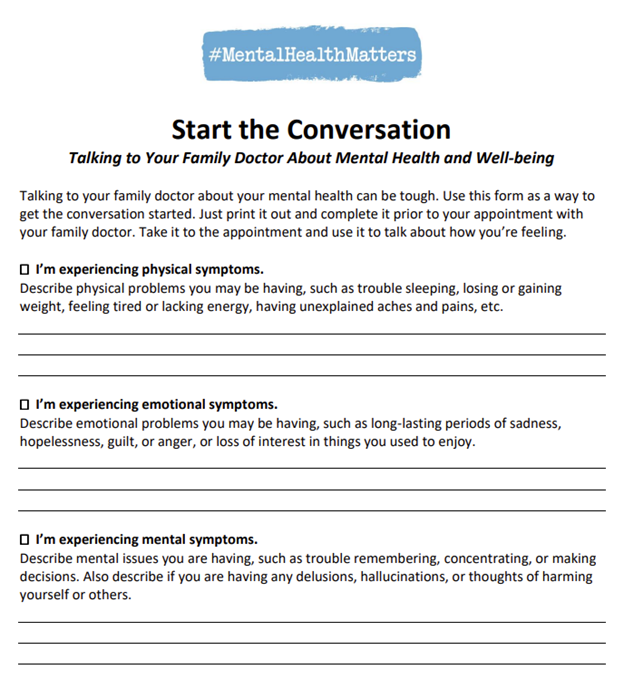What to Know
Getting treatment for mental illness is important. It rarely goes away on its own. Left untreated, it can get worse, lead to other health problems, or last for a long time.
Different Types of Mental Health Treatment
Mental Health Myths: Stop the Stigma
When to See Your Doctor
Every mental illness has its own list of symptoms. But there are common ones that could be a red flag that something is wrong. These include:
- Seeing or hearing things that aren’t there
- Loss of appetite
- Thinking negative thoughts about yourself
- Frequently feeling anxious or worrying a lot
- Irritability or moodiness
- Having trouble concentrating
- Not enjoying life as much as you used to
- Finding day-to-day life difficult (getting out of bed, going to work, etc.)
- Trouble sleeping or sleeping too much
Prevention

Taking Care of Your Mental Health
The stigma that surrounds mental health and mental illness can prevent people from getting the support and help they need. Talking to your doctor is step one in taking care of your mental health.
Keeping Your Emotional Health
Being emotionally healthy doesn’t mean you’re happy all the time. It means you’re aware of your emotions.
Nutrition and Mental Health
New research finds that your food choices may also affect your mood and mental health. This is sometimes called the “food-mood connection.”

Tools & Resources
Neighborhood Navigator

Tools & Resources

